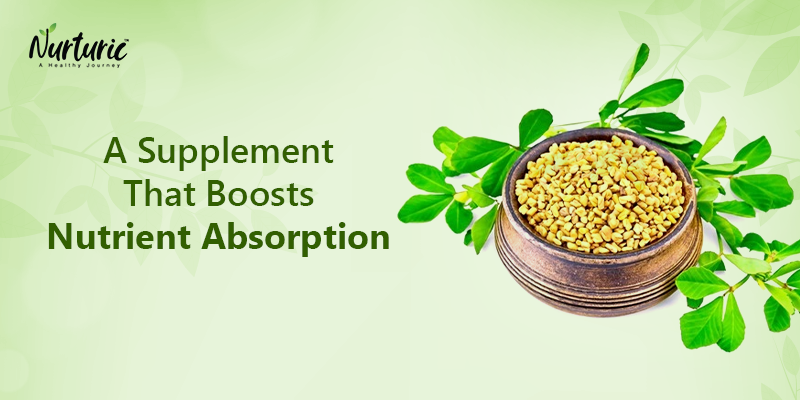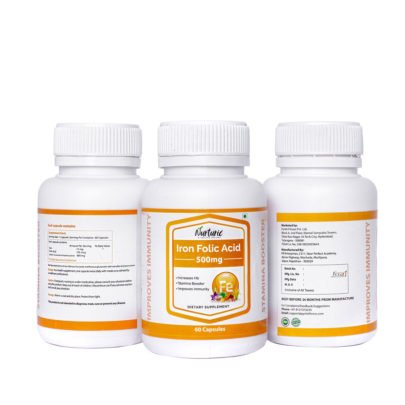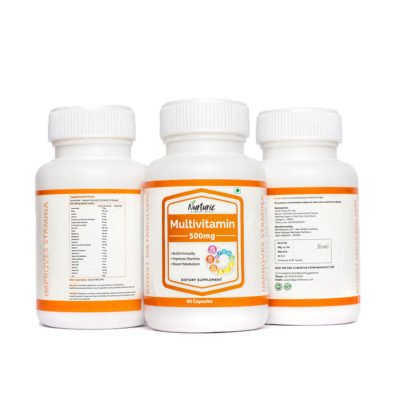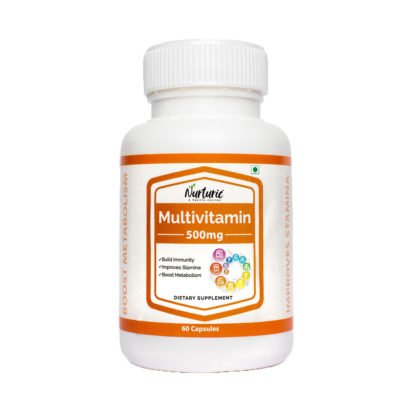- You have no items in your shopping cart
- Subtotal: ₹0.00
Aromatic and medicinal spices are vital to Indian cuisine. Cumin seeds, fennel seeds, and turmeric are the most popular spices that we use for cooking and therapeutically But fenugreek seeds, on the other hand, are not that popular. It’s a delicious spice, and its benefits are seemingly limitless. Fenugreek is one of the oldest known medicinal plants, and it is grown in India, the Mediterranean, Egypt, the Middle East, Argentina, and North Africa. The use of fenugreek was first documented on ancient Egyptian papyrus around 1500 BCE. Read on to learn more about fenugreek capsules benefits.
Fenugreek is one of the oldest known medicinal plants, and it is grown in India, the Mediterranean, Egypt, the Middle East, Argentina, and North Africa. The use of fenugreek was first documented on ancient Egyptian papyrus around 1500 BCE. Read on to learn more about fenugreek capsules benefits.
What is Fenugreek? And Why Do You Need It?
Fenugreek is a super herb with numerous medicinal benefits for your health and well-being. It has played a crucial role in alternative medicine since ancient times. Fenugreek belongs to the Fabaceae family. It is an annual herb used by various names in different cultures, including methi, Greek hay, bockshornsame and bird’s foot. Fenugreek seeds play an important role in health, from improving reproduction function to promoting healthy nutrition. They are high in antioxidants, antimicrobial compounds, and anti-diabetic properties. Learn more about the methi water benefits.
Fenugreek seeds play an important role in health, from improving reproduction function to promoting healthy nutrition. They are high in antioxidants, antimicrobial compounds, and anti-diabetic properties. Learn more about the methi water benefits.
The 10 Benefits of Fenugreek Seeds
Fenugreek seeds are used to enhance pancreatic function by increasing glucose utilization. In addition, fenugreek has antitumor, antiviral, antimicrobial, anti-inflammatory and antioxidant properties. It has been used as galactagogues to improve breast milk production for ages. In Ayurveda, fenugreek seeds are considered to be an excellent food for people who have Kapha dosha. Its extracts exhibit anti-diabetic properties, hypocholesterolemic effect, anticancer effect and hyperglycemic effect. Here are some more fenugreek extract benefits.
In Ayurveda, fenugreek seeds are considered to be an excellent food for people who have Kapha dosha. Its extracts exhibit anti-diabetic properties, hypocholesterolemic effect, anticancer effect and hyperglycemic effect. Here are some more fenugreek extract benefits.
Reduces Cholesterol levels
Fenugreek reduces the total cholesterol and LDL cholesterol, which is bad cholesterol. They are high in steroidal saponins, which prevent the absorption of cholesterol and triglycerides and reduce the production of cholesterol in the liver. It contains a flavonoid called naringenin, which lowers lipid levels in people with high cholesterol.
Controls Diabetes
Fenugreek seeds contain Galactomannan, a fiber and an essential constituent that aids in carbohydrate digestion and absorption. This lowers blood glucose levels in people with diabetes and improves overall glucose tolerance. Apart from that, it contains an amino acid called 4-hydroxy isoleucine, which has anti-diabetic properties such as increasing insulin sensitivity and secretion under hyperglycemic conditions and treating type 1 and type 2 diabetes mellitus.
Relieves Constipation
Fenugreek can be helpful to those suffering from stomach problems. It is an effective treatment for indigestion and gastritis. It helps to prevent constipation as well as digestive issues caused by stomach ulcers. Its lubricating properties aid in soothing your stomach and intestines because it is a natural digestive tonic. Fenugreek’s soluble fiber absorbs water and adds bulk to stools, allowing them to move more quickly. As constipation frequently causes bloating and cramping, fenugreek may also help alleviate these symptoms.
Reduces Menstrual Discomforts
Since ancient times, various cultures like Egyptians, Chinese, and Indians have used fenugreek to alleviate menstrual cramps. It can quickly relieve the pain associated with PMS and menstrual cramps. These seeds contain isoflavones and diosgenin compounds that help with mood swings and hot flashes. Fenugreek, because of its iron-rich properties, is highly beneficial to women experiencing period pain. It can significantly reduce menstrual pain and symptoms such as fatigue, headache and nausea.
Prevents Cardiovascular Diseases
Fenugreek seeds are beneficial to cardiovascular health. Heart attacks are a cause of death, occurring when an artery leading to the heart becomes clogged. Fenugreek protects the heart from further damage and combats the oxidative stress that occurs during a heart attack. The sodium and potassium content of fenugreek extracts aids in the maintenance of an average heart rate and blood pressure.
Stimulates Breast Milk Production
Women in Asia have used fenugreek seeds to increase their breast milk production. The herb contains phytoestrogen, which helps lactating mothers produce more milk. It acts as a galactagogue that aids in the production of milk in breastfeeding mothers who may be experiencing a decrease in milk supply. Galactagogues are substances that stimulate the milk ducts, resulting in an increase in milk production possible in as short as 24 hours. Drinking fenugreek tea also appears to increase breast milk supply in mothers, promoting infant weight gain.
Promotes Healthy Hair
Fenugreek has a soothing effect on the scalp, which results in black, lustrous hair. The anti-bacterial and anti-fungal properties of its seeds provide an easy and natural way to get rid of dandruff. Massage your scalp with boiled fenugreek seeds that have been soaked overnight in coconut oil. It’s an excellent treatment for hair loss or thinning and is used to treat skin-related hair problems like dandruff. The benefits of fenugreek seeds soaked in water go beyond just great flavor but they are also great for your hair.
Helps with Weight Loss
If you want to curb your calories intake, you must include fenugreek seeds in your diet. Fenugreek water, made from soaked fenugreek seeds, is commonly used to aid in weight loss. It aids in preventing fat accumulation and improves the metabolism of lipids and glucose, which aids in weight loss. It promotes weight loss by suppressing appetite, providing short-term energy, and potentially modulating carbohydrate metabolism. The most common way to consume fenugreek seeds for weight loss is to mix them with water first thing in the morning.
Treats Arthritis
Fenugreek is high in calcium and magnesium, both of which are beneficial to bone health. It aids in the relief of irritated internal surfaces and the stimulation of bone healing. Furthermore, the anti-oxidant and anti-inflammatory properties of fenugreek seeds help in reducing knee pain in arthritis patients.
Boosts Testosterone in Men
In Ayurvedic treatment, fenugreek has long been used as an aphrodisiac. It treats hernias and male pattern baldness, as well as erectile dysfunction. Saponins found in seeds may stimulate hormones such as testosterone and estradiol, a type of estrogen.
These are some of the ways fenugreek seeds can benefit your health. Let us now discuss why we need them and what conditions can it treat or prevent.
Who Needs It? Which Conditions Can It Treat or Prevent?
Fenugreek is considered a superfood due to its nutrient-dense properties. Consuming this super-herb daily can boost your optimal health. It not only aids digestion but also soothes the stomach and intestinal lining and assists in the delivery of oxygenated blood to the kidneys, and increases the number of red blood cells in our bodies. In addition, it aids in the reversal of kidney damage and helps in the prevention and treatment of a wide range of illnesses. Let’s see what conditions it can treat.
- Eczema
- Burns
- Uterine contractions
- Hormonal imbalance
- Colon cancer
Although it is an intriguing herb with numerous health benefits, you should always consult with your doctor to see if fenugreek may interact with any of your current medications. Now that we’ve seen the benefits of fenugreek and the conditions it can prevent, let’s look at the side effects and who should avoid taking it.
Now that we’ve seen the benefits of fenugreek and the conditions it can prevent, let’s look at the side effects and who should avoid taking it.
Possible Side Effects
Fenugreek found in foods or supplements is safe when consumed in moderation. But If you have diabetes, are on blood thinners, or antiplatelet medication, you should only use fenugreek under the supervision of a doctor. Fenugreek can enhance the effects of these medications in lowering blood sugar levels or impairing blood clotting. Let’s see some of the adverse effects of excessive consumption.
1. Extreme weakness
2. Confusion
3. Sweating
4. Fast heart rate
5. Trouble speaking
6. Nausea
7. Vomiting
8. Rapid breathing
9. Fainting
10. Seizure
These are some side effects that may occur if the supplement is consumed in excess. Before taking fenugreek, consult your doctor if you have any of the above concerns. You’ve seen the fenugreek seeds’ uses and adverse effects of fenugreek seeds. Let us now talk about its nutritional benefits.
You’ve seen the fenugreek seeds’ uses and adverse effects of fenugreek seeds. Let us now talk about its nutritional benefits.
Nutritional Information and Ingredients – Background
Fenugreek seeds contain a high concentration of phytonutrients, minerals, and vitamins. Fenugreek seeds are rich in choline, trigonelline diosgenin, yamogenin, gitogenin, and other phytochemical compounds. Fenugreek contains protein, fats, carbohydrates, calcium, copper, iron, magnesium, manganese, phosphorus, potassium, selenium, sodium, zinc, vitamin A, vitamin C, vitamin B6, vitamin E, and vitamin D K, riboflavin, thiamin, folate, niacin, and fibers. A 1 tsp (3.700g) serving of fenugreek seed contains 12 calories. The calorie breakdown is 18% fat, 72% carbs, and 28% protein.
Fenugreek contains protein, fats, carbohydrates, calcium, copper, iron, magnesium, manganese, phosphorus, potassium, selenium, sodium, zinc, vitamin A, vitamin C, vitamin B6, vitamin E, and vitamin D K, riboflavin, thiamin, folate, niacin, and fibers. A 1 tsp (3.700g) serving of fenugreek seed contains 12 calories. The calorie breakdown is 18% fat, 72% carbs, and 28% protein.
Now that we’ve seen what fenugreek can do for our health, let’s look at how to pick the best supplement.
How to Choose the Right Supplement and Where to Buy It From
The herb can be available in various forms, including powders, whole seeds, and supplements. However, if you decide to buy it, make sure that the supplement comes from a reputed brand and is natural.  If you are looking for the best organic fenugreek supplements, you can buy Nurturic Fenugreek Seed Capsules, which are 100% organic extract.
If you are looking for the best organic fenugreek supplements, you can buy Nurturic Fenugreek Seed Capsules, which are 100% organic extract.
Our Take
With all of the fantastic fenugreek benefits, this herb is an excellent addition to your diet. It is a highly adaptable and nutrient-dense herb that can benefit you in several ways.
FAQs
1. What happens if you take fenugreek every day?
Daily intake of fenugreek helps lower the total cholesterol and triglycerides levels in our body while increasing good cholesterol.
2. How much fenugreek can I take a day?
It is recommended to take 1 capsule (500 mg) per day.
3. When should you not take fenugreek?
Fenugreek can interfere with blood clotting and increase your risk of bleeding. Stop taking fenugreek at least two weeks before surgery, dental work, or a medical procedure.
4. Is fenugreek safe for kidney patients?
Yes. Fenugreek seeds improve renal function by decreasing calcification processes in the renal tissue and also increases the level of antioxidant protection.
5. Can fenugreek be harmful?
No. Fenugreek is completely safe when it is taken in recommended dosage. Excess consumption may cause asthma, low blood sugar, allergic reactions and wheezing.
6. Does fenugreek water help in periods?
Yes. It reduces the pain that women go through during their menstrual cycle and helps with mood swings and hot flashes.
7. Is fenugreek good for weight loss?
Yes. Fenugreek seeds are high in soluble fiber and can help you lose weight by suppressing your appetite, increasing satiety, and lowering your calorie intake.
8. Is fenugreek good for acne-prone skin?
Yes. Fenugreek contains diosgenin, which has anti-inflammatory properties and helps moisturize the skin, lighten fine lines and treat acne.
9. Is it safe for a 15-year-old to take fenugreek?
Yes. But, even though fenugreek has no serious adverse effects, it is recommended to consult your doctor before incorporating it into your diet.
10. What is the best time to take fenugreek seed capsules?
Fenugreek capsules should be taken twice daily, after meals, with water. Alternatively, follow your doctor’s instructions.











